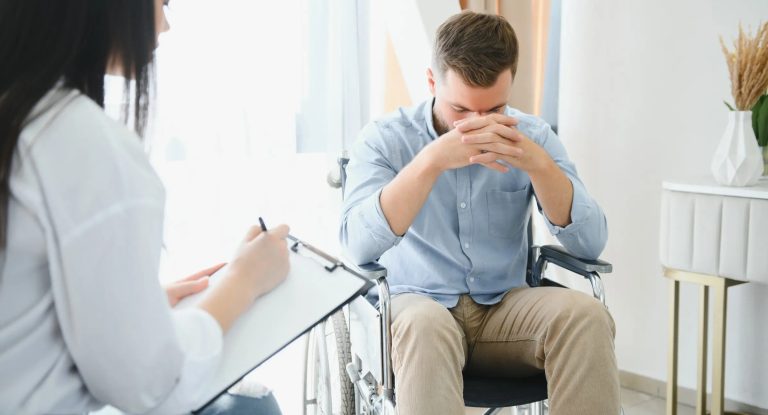Table of Contents
TogglePsychological injury is more than physical because there is a psychiatric effect that has impacts on the emotions, thoughts and even perception of feeling well. This essay addresses the hidden epidemic of mental traumas created by personal injuries through a review of their effects on one’s psychological status. If the accident has had an effect on your mental health then you should consult with a professional psychiatrist or psychologist who can help you in this regard.
Moreover, if you are living in Corpus Christi, you must timely hire a personal injury attorney corpus christi as they have vast knowledge and skills. Let’s delve into the impacts of personal injury on mental health in this article.
The interrelatedness of physical and psychological well-being is shown as follows:
Awareness of the intricacies between physical and psychological health is a significant step in pronouncing specific role personal injuries aftermath. Physical injuries generally result in emotional manifestations, and the cognition of mental health diseases gives an individual way to react and heal from a physical injury.
The injury can cause further stress and trauma resulting in pre-existing mental health conditions that become worse or new ones developing from the source. On the other hand, people with arresting mental is might prove resilient in bodily challenges. The understanding of this dialectical process is necessary for the design and implementation of comprehensive treatment strategies.
Emotional attitudes towards self-inflicted injuries might as well vary from low to high. From an accident, it is common for people to be shocked, afraid of their lives, anger from other drivers or deceased loved ones and even some may feel frustration that they lost something that was valuable such as cars. Such individuals also tend to be sad about the destruction of property and life due to carelessness on the part where many people could have prevented them if he or she only followed what was Although not specified, there is a wide variety of heightened emotions that often come as self-abrupt disruptions to someone’s health and routine.
Additionally, the prevailing question of how things will return to normal and subsequent changes in day-to-day life together with fears about what awaits over time increase stress levels. Addressing such emotional responses also goes in line with proper mental care along the rehabilitation pathway.
Severe accidents and traumatic events stand as sources of Post-Traumatic Stress Disorder (PTSD) due to these individuals may develop it. PTSD can be in the form of flashbacks, nightmares, hypervigilance and feelings of emotional distress. Personal injuries mostly those near death, catastrophic or mutilating in nature can be qualified.
It is also very important to know the symptoms of PTSD and always seek medical help whenever one finds him/herself manifesting such signs. The consideration of mental health, in addressing trauma further and recovery is critical.
Irritation and mental distress are part of an acute injury in many cases, which highlights the complicated relationship between physical pain and mental health. Because chronic pain never fades away, it can begin to cause anxiety and depression sooner or later, and hence a sharp deterioration in life’s condition.
The psychological aspects that come with instability and the accompanying chronic pain in terms of emotional challenges require strategic controls. Combining pain control methods, psychological support, and life changes remains necessary for the treatment of not only physical but also mental as etched in chronic pain.
The loss and the grief that follows a serious injury are just as debilitating to humans as it can cause an individual to lose their sense of control.
Personal injuries make a person feel like they are losing something and this may be either physical or psychological loss such as loss of mobility, freedom, or even collapse of the old lifestyle. In order to recover emotionally, grieving these losses comes as a natural urge. The refusal to perceive and react to the sense of loss can lead to a temporary condition that is difficult for an individual to overcome alone.
Counseling, support groups, and therapy create opportunities in which to cope with the emotional maze of loss. Affairs themselves are difficult, but the realization of their appropriateness is important for recovery in good mind and heart.
Social Isolation and the Mental Health Concerns
In the period of recovery after personal injury one may face restrictions due to physical factors because many social activities usually become impossible. Social loneliness often plays a role in other types of feelings; including, lonesomeness, trepidation and usually melancholy. The sense of disconnectivity from social networks provides a further complication to the process already underway in such challenges.
Friendships play an important role in combating social isolation even though one is ill. Engaging with friends and family, counseling, community support groups, as well as exploring alternative social activities are therefore significant responses to social isolation. Mental health during the deployment process also depends greatly on fostering an encouraging socially conducive environment.




